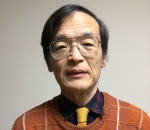以下大雑把な英語版です。
知ってる内容を英語ルートで理解。洋画で字幕を読んで英語を聞くように。
日本語の内容はこちらから
↓ ↓ ↓
https://worldlife.jp/archives/10929
Weren’t you riveted in front of TV watching WBC games this year? The greatest hero must have been Ohtani Shohei, a major leaguer at Los Angeles Angels, who got suddenly famous for his versatility in being the best batter and the best pitcher.
In the pre-game meeting of the Japanese players, he is reported to have said,
“Stop admiring the American players, otherwise you can’t surpass them. To beat them, stop admiring them for one day.” This pep talk was really to the point and got across to the rest of the team.
And the same thing is true when trying to have an English conversation with a native speaker. It’s very hard to talk to a person you admire as equals. You must overcome this psychological barrier if you are to be fluent in English, or you have to bypass it. What I mean is that you can choose to avoid native speakers of English, whom you admire too much and easily feel intimidated by, and, instead, you might want to talk to non-native speakers of English. I myself once traveled as an amateur translator with a group of 200 young Japanese and a few dozens of non-native English speakers. I had no native English speakers to admire, so it was fairly easy to speak English. You may want to try this method next time you try to brush up your spoken English. Talk to a non-native speaker of English. I didn’t talk about this at all in the Japanese version.
As for etymology, I talked about the relatedness of such words as admire, miracle, mirror, and smile, all of which descended from the common ancestor, what I call DNA here, SMEI<see, or look>, though all of them look slightly different after undergoing historical sound change, but they are sufficiently similar to suggest their affiliation.
私立学校に英語教師として勤務中、40代半ばに差し掛かったころ、荒れたクラスを立て直す策として、生徒に公言して英検1級に挑戦することを思い立つ。同様の挑戦を繰り返し、退職までに英検一級(検定連合会長賞)、TOEIC満点、国連英検SA級、フランス語一級、スペイン語一級(文科大臣賞)、ドイツ語一級、放送大学大学院修士号などの成果を得る。
アメリカで生徒への対応法を学ぶ為に研修(地銀の助成金)。最新の心理学に触れた。4都県での全発表、勤務校での教員への研修を英語で行う。現在も特別選抜クラスの授業を全て英語で行っている。「どうやって単語を覚えればいいですか?」という良くある質問に答える為、印欧祖語からの派生に基づく「生徒には見せたくない語源英単語集」を執筆中。完成間近。常日頃洋書の読破で様々な思考にふれているが、そうして得た発想の一つを生かして書いた論文がコロナ対策論文として最近入賞。賞品の牛肉に舌鼓をうっている。元英検面接委員


